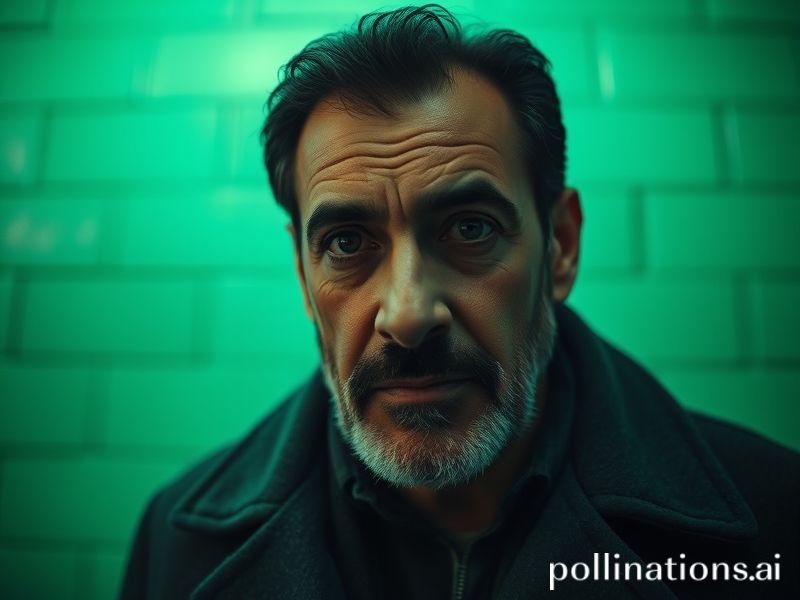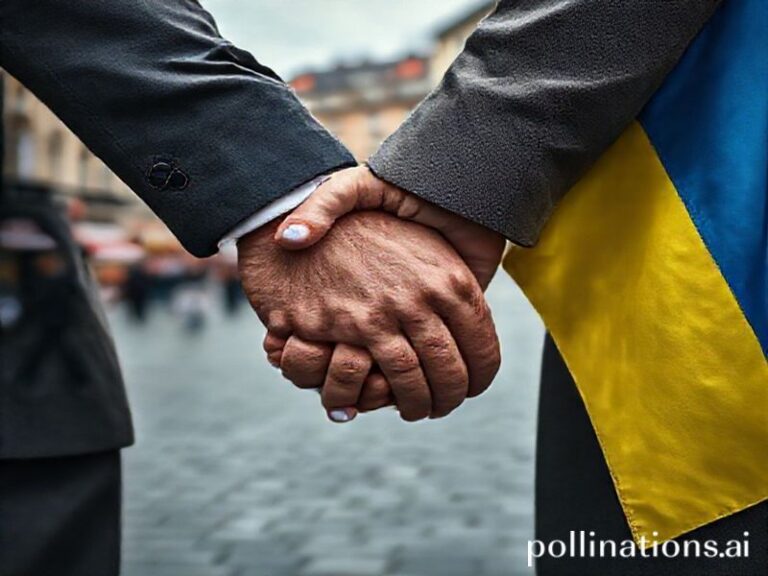Mahmoud Khalil: The Man Caught Between Two Empires and Everyone Else’s Twitter Feed
Mahmoud Khalil: One Man, Two Passports, and the Entire Planet’s Nervous Breakdown
By the time Mahmoud Khalil was escorted off a sidewalk in St. Louis last month—hands zip-tied, Columbia Law sweatshirt riding up to reveal a polite paunch—he had already become a Rorschach test for whatever international ailment you happened to be nursing. To the U.S. Department of Homeland Security he was a “visa overstay with possible Hamas sympathies.” To the Egyptian foreign ministry he was Exhibit A in the long-running melodrama “Look How Washington Treats Our Kids.” To the French nightly news he was the latest American afterthought now barging into Europe’s refugee debate. And to your doom-scrolling aunt in Jakarta he was simply another pixelated face captioned “They’re coming for us next.”
Khalil, 30, dual citizen of Egypt and the United States, former translator for Médecins Sans Frontières, newly minted green-card holder, and—as his own résumé modestly boasts—someone who once “helped negotiate safe passage for a maternity ward in Gaza,” now sits in a county facility wearing what friends call “detention chic” (orange jumpsuit, thousand-yard stare). The charge sheet is a bureaucratic haiku: “administrative violation” plus “material support to a designated entity.” Translation: he allegedly shared a crowdfunding link during last year’s war that, somewhere down the donor chain, may have bought rockets instead of bandages. Guilt by PayPal.
Cue the global karaoke of outrage. In Berlin, activists projected Khalil’s face onto the Brandenburg Gate with the hashtag #FreeMahmoud—right between ads for oat-milk lattes. In Cairo, state TV reran the footage on loop, helpfully mistranslating “material support” as “nuclear codes.” Chinese social media, meanwhile, repurposed the story into a 45-second TikTok clip titled “America Kidnaps Its Own Citizens,” which racked up 12 million views before being memory-holed by censors who suddenly remembered they also have Muslims in detention.
The real punch line? Everyone’s using Khalil to prove their own geopolitical point while steadfastly ignoring the man himself. The Biden administration wants to look tough on border security ahead of an election year when “Hamas” polls worse than “traffic.” Egypt needs a distraction from its own record of disappearing students who merely retweet the wrong emoji. Europe, drowning in its own asylum backlog, clutches Khalil like a life raft of moral clarity. And the global commentariat—your humble correspondent included—gets fresh content for the outrage economy, CPM rates adjusted for regional trauma.
Yet step back and the Khalil affair is less about one man than about the planetary mood disorder we politely call “the international system.” Borders have become hyperlinks: clickable, porous, and occasionally 404. Dual citizenship, once the ultimate bourgeois perk, now functions like having two ex-spouses who hate each other and both claim the dog. Meanwhile, the definition of “material support” expands faster than a Silicon Valley valuation: retweet a charity, Venmo a cousin, wear the wrong color wristband—congratulations, you’re now on a watchlist.
Financial markets, ever allergic to moral nuance, have already priced in the turbulence. Shares in private-prison operators ticked up 3% on the news—“regulatory tailwinds,” analysts shrugged. Defense contractors yawned; they’ve seen worse. Even the halal ETF dipped, presumably on fears that ethical investing might soon be classified as “terrorist financing” if the algorithm squints hard enough.
So what happens to Mahmoud Khalil? Best-case scenario: a federal judge remembers the First Amendment exists, he walks free, and lands a book deal titled “Orange Is the New Hummus.” Worst-case: he’s quietly deported to Cairo, where state security asks him to explain why he owns a T-shirt that says “Coexist” in Arabic, Hebrew, and Klingon. Either way, the rest of us will scroll on, because tomorrow another name will trend, another border will harden, and the world will keep auditioning fresh victims for the same old tragedy.
In the end, Khalil’s story is not exceptional; it’s just exceptionally well-timed. A single man, caught between two passports, now illuminates the absurdity of nations demanding loyalty while outsourcing empathy. And somewhere in a Missouri cell, he’s probably wondering whether translating “Please, the baby first” into three languages was ever worth this much international attention. Spoiler: it was. But not for him.







